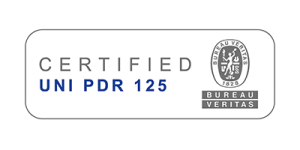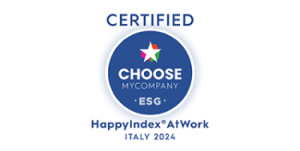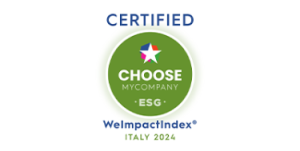
A CEO without borders: Nazzareno Gorni’s digital nomad experience
CEOs often travel for work. But what if such a key corporate role travels by choice and not just by need, while continuing to work? Would they still be able to guarantee presence and safe guidance to the rest of the company?
The answer is yes. The digital nomad lifestyle has gained enormous popularity in recent years. Thanks to developments in technology and the increase in remote work opportunities, more and more people, regardless of their job level, choose to break free from traditional office locations and embrace the possibility of working from anywhere in the world.
Being able to travel while working is not a limit to performances, quite the opposite, it provides a great opportunity for both the company and employees themselves. It allows the development of new skills and contributes to the happiness of individuals who, by feeling more satisfied, improve their work performances.
The digital nomad experience of Nazzareno Gorni, CEO of Growens
Thanks to the WoW (Way of Working) program, any Growens employee can freely choose where and how to work.
Such opportunity is open also to the top management and for this reason, in December 2023, Nazzareno Gorni set out to work in Bali for three months.
Here is his experience.
How did you get the idea of working from Bali?
I chose this island because of its reputation of being one of the best places in the world to work remotely. Now I understand why: breathtaking landscapes, cheap cost of life, plenty of services and excellent connectivity.

As a CEO working remotely, what challenges are you facing?
For what concerns working remotely, the most complicated matter is arranging conference calls that include people from different time zones, such as Central Europe and California.
Sometimes this means that I have to be awake and operational between 11 pm and 1 am.
On the other hand, for what concerns my personal life, the toughest part is the lack of face-to-face interactions with my children (who, however, joined me for the Christmas holidays), colleagues, friends and work network. Fortunately, however, over a three-month period these difficulties are easily manageable.
What are the opportunities and the advantages?
Broadening one’s horizons and discovering new cultures is a definite plus. I can explore a part of the world not so well known and that it is very different from what I am used to.
Having this kind of knowledge can be very useful, for example, for future business expansion in Asia or for evaluating and communicating with companies from this part of the world.
Asynchronous work is another advantage.
Oftentimes, we hold meetings where an email or a collaborative document can be enough. It is often much more productive to discuss asynchronously, because it encourages mental discipline and focus in expressing one’s thoughts in a clear and concise manner.
Do you have any advice for anyone wanting to go on a similar experience?
First of all, in Bali, as well as in Indonesia, Vietnam and Thailand, a pair of shorts, a t-shirt and sandals are enough, you don’t need to overdo it with your luggage.
Furthermore, it is better not to pay attention to the weather forecast, it seems like it is raining constantly but instead it is the opposite. To try this experience, I recommend going in the low season because it allows a lot of flexibility. You can avoid booking anything in advance (accommodation, restaurants, travel arrangements and so on).
I also recommend getting a mobile phone that supports eSIMs, which are very useful for activating data plans with apps such as Airalo, Nomad or Holafly. It is also essential to choose a data plan that allows you to activate the Hotspot on your computer.
In terms of personal productivity, in addition to the classic advices typical of remote workers, here is what I find useful when spending time in a time zone far away from the European one for a long time:
- Adding two “out of office” periods on my calendar: one after dinner “only for urgent meetings”, and the other during the night as “night time”
- Activating the double time zone function, in Google Calendar, in order to always have the two main time zones at hand
- Using the free Chrome extension Timebuddy which allows to cross-reference up to 5 different time zones
- Taking notes, for pen and paper enthusiasts like me, using Remarkable. I also tried Supernote and Onyx Boox but my final choice was Remarkable
- Bringing an extension cable as light as possible
- Getting a VPN that supports Italian IPs because some apps and sites are blocked, given that I am connecting from South East Asia
- Taking advantage of tools that promote online collaboration such as Google Workspace, Confluence/Jira, Slack, Beefree and so on
Ultimately, what is the best thing about choosing where to work from?
Without a doubt, it’s the ability to balance personal needs with work, and to reduce transfers.This means more free time, more money saved, less stress and less CO2 emissions.
The quality of life improves dramatically thanks to flexibility. You don’t have to “clock in” from 9 am to 6 pm and with a little attention and awareness, you can be much more productive and at the same time spend more time with your family and on your hobbies outside of work.
Would you recommend leaving and working remotely, like you did?
For sure. I also recommend it for an economic reason: transfers and the cost of living, as I describe in my article on LinkedIn, are absolutely accessible both in Indonesia and even more so in Vietnam.




